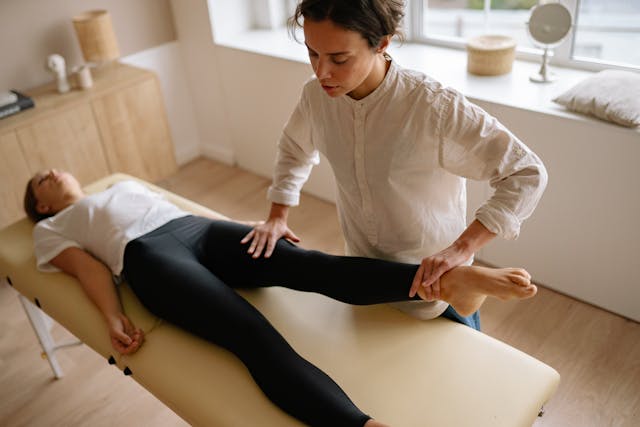Shocking Signs your Joints are Silently Screaming For Help
Ever felt those subtle twinges or stiffness in your joints and wondered if they’re trying to tell you something? Your joints might be silently screaming for help, and it’s time to listen! In this blog, we’re uncovering nine surprising signs that your joints might be in distress, possibly indicating the presence of degenerative joint disease. So without further ado let’s explore these key signals together and find out how you can give your joints the care they deserve.
- Morning Stiffness
If you find it takes longer for your joints to limber up in the morning, it could be a sign of degenerative joint disease. Morning stiffness, especially lasting for more than 30 minutes, may indicate inflammation or joint damage. Pay attention to how your joints feel when you wake up – it’s a crucial clue your body might be giving you.
- Popping or Cracking Sounds
While the occasional crack or pop when you move a joint might not be concerning, persistent or frequent sounds could be a sign of trouble. It may indicate uneven surfaces on the joints or changes in the joint fluid, both potential indicators of degenerative joint disease.
- Decreased Range of Motion
Have you noticed that you can’t move your joints as freely as you used to? A decreased range of motion can be a red flag for joint issues. If your joints feel stiff, tight, or are limiting your movements, it’s time to investigate the underlying cause and seek professional advice.
- Swelling and Tenderness
Swollen or tender joints are clear signals that something might be amiss. Inflammation in the joints can lead to discomfort and reduced mobility. Keep an eye out for any changes in the appearance or feel of your joints, especially if the swelling persists.
- Unexplained Fatigue
Feeling tired for no apparent reason might be linked to joint issues. The body works extra hard when joints are inflamed or damaged, leading to fatigue. If you find yourself unusually tired without a clear cause, it’s worth considering whether your joints are silently asking for help.
- Joint Warmth
Healthy joints shouldn’t feel warm to the touch. If you notice warmth around a joint, it could be a sign of inflammation. Inflamed joints produce extra blood flow, leading to increased temperature. Don’t ignore this subtle but crucial signal from your joints.
- Joint Deformities
Visible changes in the shape or alignment of your joints are strong indicators of degenerative joint disease. If you notice any deformities or if your joints look different than usual, it’s essential to consult with a healthcare professional to determine the underlying cause and potential treatment options.
- Difficulty Performing Daily Tasks
Struggling with simple tasks like opening jars, buttoning shirts, or walking up stairs could be a sign of joint issues. Difficulty in performing everyday activities may indicate joint damage or inflammation, and seeking help early can prevent further deterioration.
- Increased Pain During Weather Changes
Some people claim to feel changes in their joints with weather fluctuations. While the scientific evidence on this is not conclusive, many individuals report increased joint pain during certain weather conditions. If you notice a correlation between weather changes and joint discomfort, it’s worth exploring and discussing with a healthcare professional.
Ending Up
Your joints are the unsung heroes that allow you to move and groove through life. If you’ve observed any of these surprising signs, it’s crucial to take action and provide the care your joints need. Ignoring these signals could lead to further complications, potentially progressing to degenerative joint disease.
If you’re experiencing joint discomfort or want expert advice on maintaining joint health, consider reaching out to MyChiro, a leading chiropractic brand located in Sydney. Their experienced chiropractors specialize in top-notch chiropractic care and can provide personalized guidance to address and prevent joint issues. Take the proactive step towards healthier joints and enjoy a more comfortable, active life.
Here’s to listening to your joints, giving them the care they deserve, and dancing through life with ease.

